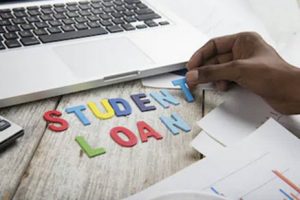Student Loan Forgiveness and Bankruptcy

The coronavirus pandemic and student loan crisis were two of the biggest headlines from 2020. As a result of this combination, there is a growing movement afoot to forgive student loan indebtedness. But this push has generated considerable controversy, to say the least. Additionally, no one is exactly sure what loan forgiveness would look like, or how soon actual relief would be available.
Bankruptcy, on the other hand, is available now. And, since student loans are unsecured debts, they could be dischargeable in a Chapter 7 or Chapter 13 bankruptcy. But since they are priority unsecured debts, they are only dischargeable in certain circumstances. Only an experienced Chicago bankruptcy lawyer can effectively evaluate your situation and advise you about all your legal options.
Student Loans and Bankruptcy’s Automatic Stay
Bankruptcy does much more than dissolve unsecured debts. It also stops all forms of creditor adverse action, such as:
- Harassing letters or phone calls,
- Student loan collection lawsuits, and
- Wage garnishment.
This relief is available whether or not the student loan or other underlying debt is dischargeable. Section 362 of the Bankruptcy Code also prevents creditors from undertaking such action.
Generally, the Automatic Stay remains in effect as long as the case is pending. It is almost impossible for unsecured creditors, even the federal government, to bypass the Stay. If you have filed bankruptcy within the previous six months, the Automatic Stay might have only a limited effect.
Section 362 of the Bankruptcy Code also gives an attorney negotiating leverage. Since the creditor has no money coming in and no way to extract money from the debtor, the creditor is usually willing to make a deal. That deal could be a lower interest rate or partial forgiveness. Additionally, these creditors know that the judge could discharge the student loan. If that happens, they get nothing. So, they are highly motivated to negotiate.
Bankruptcy and Student Loan Retirement or Forgiveness
Chapter 13 gives debtors up to five years to take care of past-due student loan payments. So, the wage earner plan bankruptcy might be a very good option for debtors who need more time to get back on their feet in the wake of the coronavirus outbreak.
The monthly debt consolidation payment in a Chapter 13 is based on the amount of the debtor’s disposable income. That’s usually a much better option than the “payment plans” some student loan lenders offer.
In many cases, a Chapter 7 could result in student loan forgiveness. The law recently changed in this area. For many years. Student loans were just like credit cards, medical bills, and most other unsecured debts. Today, these debtors must show an undue hardship. In the Hoosier State, a bankruptcy debtor has an undue hardship if:
- Repaying the loans would drive the debtor below the poverty line,
- The debtor has made a good faith effort to repay the loan, and
- The economic hardship is expected to continue for all or most of the repayment period.
The so-called Brunner Rule is very harsh. But, in 2013’s Krieger v. Educational Credit Management Corporation, the Seventh Circuit Court of Appeals watered down the Brunner Rule and made it easier for debtors to obtain a student loan discharge. Because of this recent ruling, many bankruptcy debtors are eligible for at least a partial discharge.
Connect with Experienced Lawyers
In many cases, student loan forgiveness is available here and now. For a free consultation with an experienced bankruptcy attorney in Chicago, contact the Bentz Holguin Law Firm, LLC. We routinely handle matters in Illinois and Indiana.
Resource:
foxbusiness.com/money/student-loan-forgiveness-2021


